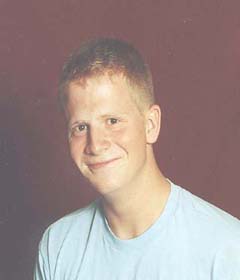Courses for next year leave many students wanting more choices

March 6, 2003
“Whether inside the classroom or out, Simpson students will not find themselves wanting for the means to reach their academic, personal and professional goals.”
The above is a direct quotation from Simpson College’s Web site, intended to lure prospective students to come join in the Simpson “Experience.” It’s a good hook to lure students in, yet I hit upon a major flaw within it.
After receiving and reviewing the course schedule book for the 2003-2004 academic year, I’m left “finding myself wanting for the means to reach my academic goals” because there are inadequate options offered in any field of study.
Do you know how many non-introductory courses that are being offered in the fall for the political science department? Three. History can only produce six, one of which is historiography, typically reserved for seniors completing their majors.
The education department alone has over 20 to pick from. Hell, even math has 10. No one subject is superior to the rest, and yet two traditional liberal arts departments are grossly undersized to provide to their students. Last time I checked this wasn’t Simpson Tech or Simpson A&M.
This makes it increasingly difficult to specialize at all in the areas of each that interest me the most. Not every student wants to learn about the same area, and each Simpson graduate shouldn’t come out knowing the exact same information as every other student in his/her department. There needs to be more academic diversification to provide that we come out as intelligent individuals with areas of expertise instead of as prefabricated automatons manufactured at Simpson College Industries.
The history of Asia, ancient Greece, the history of Germany, contemporary China and the history of modern Japan are all courses that interest me greatly, but haven’t been offered for many semesters because of reasons unclear to me. These classes would broaden students’ knowledge of history by allowing them to choose subjects they want to learn about, instead of being forced to pick from a limited corral of courses.
Independent classes allow a student to learn about whatever they want, provided the topic is approved of by the administration, and provided the student stays on task reading individually without close guidance. You can’t compare what you’ve learned with other students if no one else is doing your independent study, though, and so the information isn’t absorbed as effectively as if it were offered to a larger group.
To graduate, a Simpson student is required to complete 128 hours of academic study, including 70 hours of cornerstone courses intended to broaden our narrow horizons. Again, I’ll use my majors as reference points. A history major is 36 hours alone, and then add on 30 hours of political science with 21 hours of an English minor, and Simpson gets to squeeze another semester out of this poor scholar. The institution gets more money and I don’t get to learn more about Commodore Matthew Perry (no, not from “Friends”) or Helmuth von Moltke. Where’s the academic justice in that?











